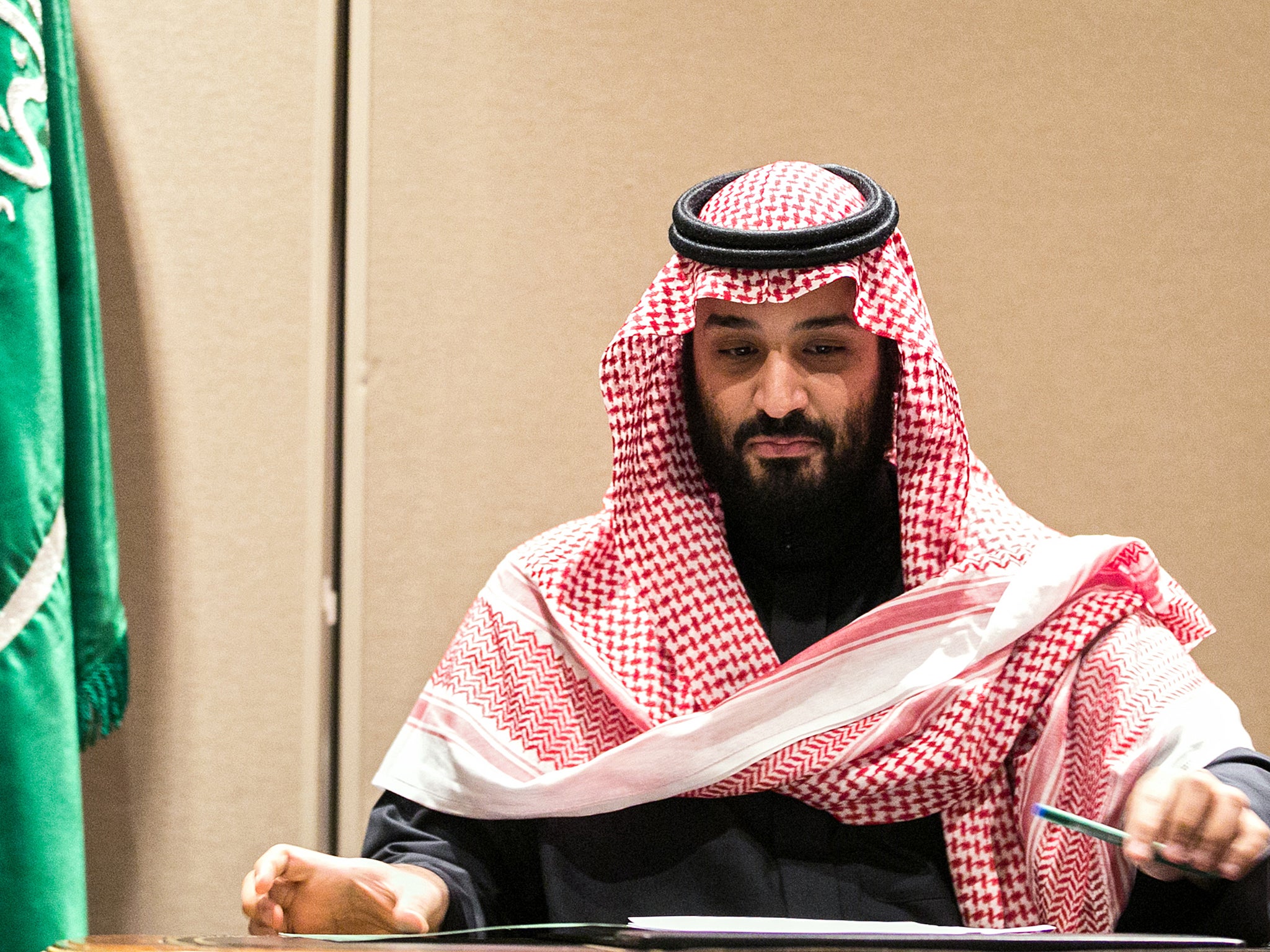
A military base in Saudi Arabia appears to be testing and possibly manufacturing ballistic missiles capable of carrying nuclear warheads, according to experts who have examined satellite images.
US analysts told the Associated Press the images offered evidence of the type of weapons programme the Saudi authorities had criticised Iran for possessing.
The November satellite imagery, taken by US company Planet Labs Inc and analysed by the Middlebury Institute of International Studies in Monterey, revealed a military base near the town of al-Dawadmi, around 145 miles west of the capital, Riyadh.
It shows what appear to be structures big enough to build and fuel ballistic missiles.
Last year Crown Prince Mohammad bin Salman said the kingdom would not hesitate to develop nuclear weapons if Iran did. Ballistic missiles can carry nuclear warheads.
An apparent rocket engine test stand was seen in one part of the base captured in the photos. Experts say test firing is key for countries trying to build working missiles.
Michael Elleman, senior fellow for missile defence at the International Institute for Strategic Studies in Washington, reviewed the satellite photos and said they appeared to show a ballistic missile programme.
Officials in Riyadh and the Saudi embassy in Washington have not yet responded to the satellite images.
Having a ballistic missile programme, if confirmed, could further damage Saudi relations with the US at a time when ties are under strain over the killing of Washington Post columnist Jamal Khashoggi.

Jeffrey Lewis, a missile expert at the Middlebury Institute of International Studies in Monterey, said heavy investment in missiles often correlated with an interest in nuclear weapons.
“I would be a little worried that we’re underestimating the Saudis’ ambitions here,” said Mr Lewis, who has also studied the satellite images. He said the Saudi stand closely resembled a design used by China, though it was smaller.
Asked on Friday about the base, China’s Defence Ministry declined to comment. “I have never heard of such a thing as China helping Saudi Arabia to build a missile base,” said Chinese Foreign Ministry spokeswoman Hua Chunying.
Neither Saudi Arabia nor China are members of the Missile Technology Control Regime, a 30-year-old agreement aimed at limiting the proliferation of rockets capable of carrying weapons of mass destruction, such as nuclear bombs.
Saudi Arabia, along with Israel and the US, has long criticised Iran’s ballistic missile programme, viewing it as a regional threat. In his interview with CBS’s 60 Minutes last March, Prince Mohammad said: “Saudi Arabia does not want to acquire any nuclear bomb, but without a doubt if Iran developed a nuclear bomb, we will follow suit as soon as possible.”
A Saudi programme would only complicate efforts by the US and its Western allies to limit Iran’s ballistic missile programme, said Stratfor, a private intelligence firm based in Austin, Texas. “Should Saudi Arabia move into a test-launch phase, the United States will be pressured to take action with sanctions, [as it has done with Iran]," it said
Congress has grown increasingly critical of Saudi Arabia since the 2 October assassination of Khashoggi at the Saudi consulate in Istanbul, allegedly carried out by members of Prince Mohammad’s entourage. The kingdom’s years-long war in Yemen also has angered politicians.
“[If the Saudis produce] medium-range systems inherently capable of carrying nuclear weapons, the response will be much more robust, though likely out of public view,” Mr Elleman said. “Congress, on the other hand, may lash out, as this will be seen as another affront to the US and regional stability.”
Additional reporting by Associated Press







